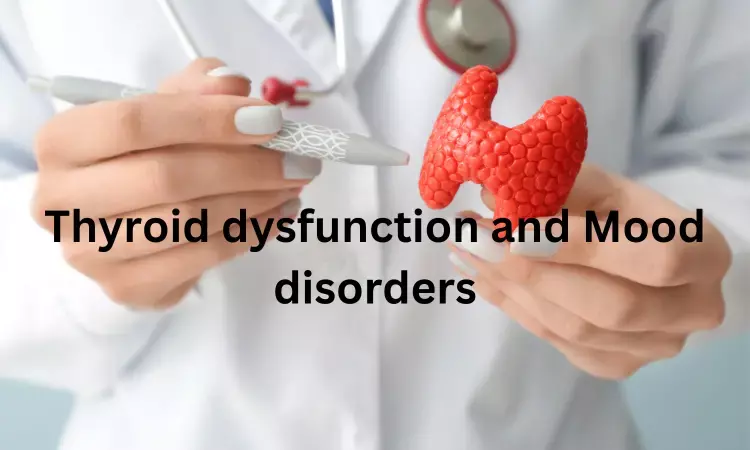- Home
- Medical news & Guidelines
- Anesthesiology
- Cardiology and CTVS
- Critical Care
- Dentistry
- Dermatology
- Diabetes and Endocrinology
- ENT
- Gastroenterology
- Medicine
- Nephrology
- Neurology
- Obstretics-Gynaecology
- Oncology
- Ophthalmology
- Orthopaedics
- Pediatrics-Neonatology
- Psychiatry
- Pulmonology
- Radiology
- Surgery
- Urology
- Laboratory Medicine
- Diet
- Nursing
- Paramedical
- Physiotherapy
- Health news
- Fact Check
- Bone Health Fact Check
- Brain Health Fact Check
- Cancer Related Fact Check
- Child Care Fact Check
- Dental and oral health fact check
- Diabetes and metabolic health fact check
- Diet and Nutrition Fact Check
- Eye and ENT Care Fact Check
- Fitness fact check
- Gut health fact check
- Heart health fact check
- Kidney health fact check
- Medical education fact check
- Men's health fact check
- Respiratory fact check
- Skin and hair care fact check
- Vaccine and Immunization fact check
- Women's health fact check
- AYUSH
- State News
- Andaman and Nicobar Islands
- Andhra Pradesh
- Arunachal Pradesh
- Assam
- Bihar
- Chandigarh
- Chattisgarh
- Dadra and Nagar Haveli
- Daman and Diu
- Delhi
- Goa
- Gujarat
- Haryana
- Himachal Pradesh
- Jammu & Kashmir
- Jharkhand
- Karnataka
- Kerala
- Ladakh
- Lakshadweep
- Madhya Pradesh
- Maharashtra
- Manipur
- Meghalaya
- Mizoram
- Nagaland
- Odisha
- Puducherry
- Punjab
- Rajasthan
- Sikkim
- Tamil Nadu
- Telangana
- Tripura
- Uttar Pradesh
- Uttrakhand
- West Bengal
- Medical Education
- Industry
Thyroid dysfunction linked to increased incident depressive events

Thyroid disorders are metabolic disorders affecting growth, and other metabolic activities. Studies suggest thyroid disease affect mood. Common thyroid disease symptoms that affect mood include anxiety or depression. In general, the more severe the thyroid disease, the more severe the mood changes.
However very few studies have examined thyroid disfunction and mood disorders longitudinally. Researchers in the current study assessed the cross-sectional and longitudinal association between thyroid function and depression in a population-based cohort.
The study published in The Journal of Clinical Endocrinology & Metabolism, found an association of thyroid function with the risk of developing depression, albeit small. Reverse causation and additional underlying factors may also contribute to the association reported the researchers.
A total of 9,471 individuals were included in cross-sectional analyses, of whom 8,366 had longitudinal data. At baseline, thyroid function using serum samples (thyrotropin (TSH), free thyroxine (FT4) and thyroid peroxidase antibodies (TPOAb)) and depressive symptoms using the Centre for Epidemiologic Studies Depression (CES-D) scale was assessed. Incident depressive events (N = 1,366) were continuously followed-up with the CES-D and clinical interviews. They analysed the cross-sectional association of thyroid function and thyroid disease with depressive symptoms using linear and logistic regression, and the longitudinal association with cox proportional hazard models for depressive events.
The key findings of the study are
• Lower TSH levels and lower and higher FT4 levels were cross-sectionally associated with more depressive symptoms with a B of -0.07 per one unit increase of natural log-transformed TSH (95% confidence interval -0.11; -0.04).
• Furthermore, hypothyroidism was cross-sectionally associated with less depressive symptoms and hyperthyroidism with more depressive symptoms.
• Longitudinally, there was a U-shaped association between FT4 and incident depressive events but only in euthyroid participants.
Researchers ended that “We show a cross-sectional association between thyroid (dys-)function with depressive symptoms, and a U-shaped association between FT4 and incident depressive events in euthyroid individuals. Our findings suggest an association of thyroid function with the risk of developing depression, albeit small. Reverse causation and additional underlying factors may also contribute to the association.”
Reference: Oscar Hernando Roa Dueñas, Amy Hofman, Annemarie I Luik, Marco Medici, Robin P Peeters, Layal Chaker, The Cross-sectional and Longitudinal Association Between Thyroid Function and Depression: A Population-Based Study, The Journal of Clinical Endocrinology & Metabolism, 2023;, dgad620, https://doi.org/10.1210/clinem/dgad620.
MSc. Neuroscience
Niveditha Subramani a MSc. Neuroscience (Faculty of Medicine) graduate from University of Madras, Chennai. Ambitious in Neuro research having worked in motor diseases and neuron apoptosis is interested in more of new upcoming research and their advancement in field of medicine. She has an engrossed skill towards writing and her roles at Medical dialogue include Sr. Content writer. Her news covers new discoveries and updates in field of medicine. She can be reached at editorial@medicaldialogues.in
Dr Kamal Kant Kohli-MBBS, DTCD- a chest specialist with more than 30 years of practice and a flair for writing clinical articles, Dr Kamal Kant Kohli joined Medical Dialogues as a Chief Editor of Medical News. Besides writing articles, as an editor, he proofreads and verifies all the medical content published on Medical Dialogues including those coming from journals, studies,medical conferences,guidelines etc. Email: drkohli@medicaldialogues.in. Contact no. 011-43720751


